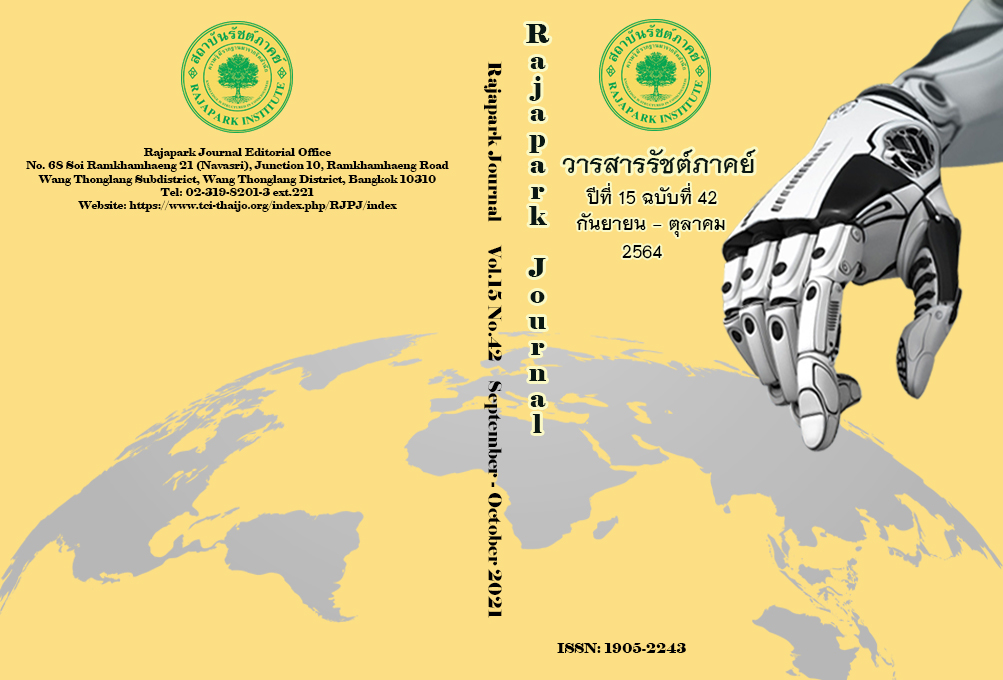Current Situations, Desirable Situations and Guidelines for Developing Digital Technology Literacy under the Nakhon Phanom Primary Educational Service Area Office 1
Main Article Content
Abstract
The purposes of this research were 1. to study the current situation and the desirable situation, 2. to study the needs, and 3. to develop technology skills for teachers of The Nakhon Phanom Primary Educational Service Area Office 1. It is research and development. The sample group was determined by comparing the tables of Krejcie and Morgan. The sample in the multi-stage sampling was 347 school teachers. There were 4 instruments used in this research: (1) a questionnaire about the current situations with the consistency index equal (IC); (2) a questionnaire about desirable situations with the consistency index equal (IC); (3) a structured interview form with the consistency index equal (IC); and (4) a suitability and possibility assessment form of guidelines with the consistency index equal (IC). The research found that 1) the current use of technology skills for teacher use is at a high level. The aspect with the highest average was using a media creation program. desirable condition of using technology skills for teachers overall at the highest level. The aspect with the highest average is online collaboration and using a media creation program. 2) Necessary Needs of using Digital Technology skills for teacher The highest average was the use of word processors. and 3) The development of using digital technology found that the suitability is at a high level and the possibility is at a medium level. The development approach uses many factors along with the development of skills and knowledge in the field of digital technology.
Article Details
Views and opinions appearing in the Journal it is the responsibility of the author of the article, and does not constitute the view and responsibility of the editorial team.
References
Bunkhantinat, A. (2019). Development of Digital Skills for Government Teachers and Educational Personnel. Journal of The Teacher Civil Service and Educational Personnel, 39(1), 5-8.
Bunyu, A. (2018). What is Digital Literacy?. Journal of the Department of Science Service, 66(207), 28-29.
Çam, E., & Kiyici, M. (2017). Perceptions of Prospective Teachers on Digital Literacy. Malaysian Online Journal of Educational Technology, 5(4), 29-44.
Information and Communication Technology Center. (2020). Digital Literacy Training Program, Ministry of Finance Annual fiscal year 2018. Bangkok: Training Course for the Permanent Secretary Office Ministry of Finance.
Institute of Academic Development. (2020). Thai Education Compass in the 21st Century. Bangkok: Academic Quality Development Company.
Kheawnamchum, J. (2020). Research for Learning Development. Nakhon Phanom: Faculty of Education, Nakhon Phanom University.
Kietzman, J. H., Hermkens, K., & McCarthy, I. P. (2011). Business Horizons. New York: Harper.
Nakhon Phanom Primary Educational Service Area Office 1. (2020). Annual Action Plan for the Fiscal Year 2020. Nakhon Phanom: Policy and Planning Group.
Neadsuebsai. P., & Karaked. N. (2017). Factors Affecting University Development into a Digital University (Research Report Education). Bangkok: Rajamangala University of Technology Phra Nakhon.
Office of the Basic Education Commission. (2020). Policy of the Office of the Basic Education Commission Fiscal Year 2020. Bangkok: The Agricultural Cooperative Federation of Thailand. Limited.
Office of the Civil Service Commission. (2019). What is Digital Technology. Retrieved June 20, 2020, from https://www.ocsc.go.th/DLProject/mean-dlp
Sirisak. K. (2016). Research on Teacher Education Program for Developing Digital Competence Enhancement Guidance(Master of Education). Chulalongkorn University.
Sriputtarin. S. (2018). The 21st Century School Management Director Skill Relationship Students Improvement of Thailand 4.0 Model of Secondary School in the Secondary Educational Service Area Office 22. Journal in National Academic Conference at Burapha University, 12(1), 397-411.
Theerapattanavong. T. (2018). Problems of the Digital Technology Strategy for Public Administration(Doctor of Public Administration). Valaya Alongkorn Rajabhat University.
The National Science and Technology Development Agency. (2020). Digital literacy. Retrieved June 20, 2020, from https://www.nstda.or.th/home/knowledge_post/trend-km-digital-age/
Thongiam, B. (2018). The Development of Indicators for Digital Literacy Skills of Teacher Student in Unlimited Admission University. Journal of Suvarnabhumi Institute of Technology, 4(1), 291-302.
Williamson, A. (2013). Social Media Guidelines for Parliaments. Retrieved August 6, 2020, from http://www.ipu.org/PDF/publications/SMG2013EN.pdf
Wongwanich S. (2015). Needs Assessment Research (3rd ed.). Bangkok: Chulalongkorn University.


